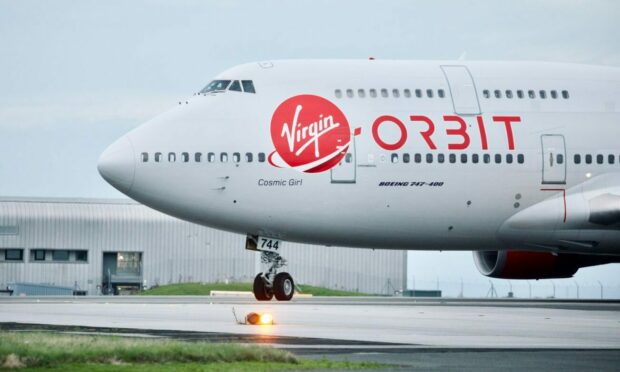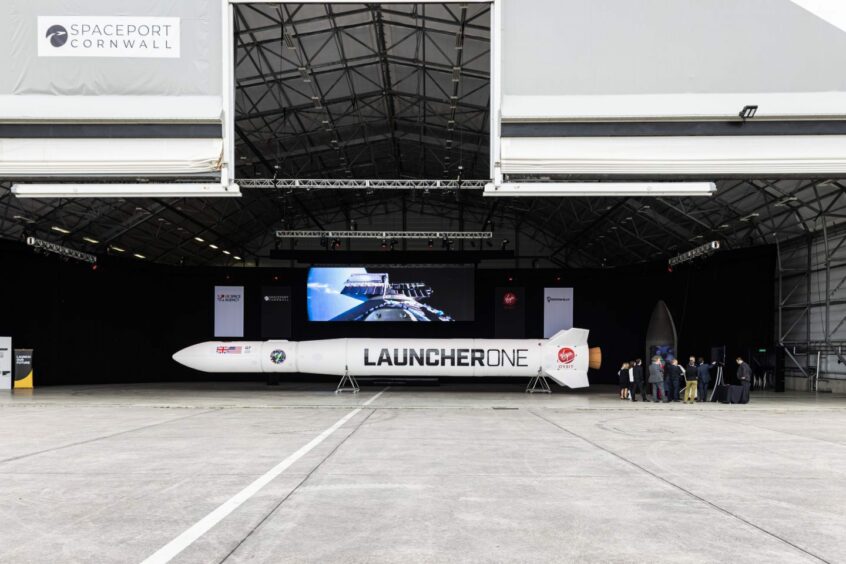An Aberdeen risk management specialist is playing its part in Europe’s first horizontal space launch from Cornwall.
Marex carried out hazard identification work at Spaceport Cornwall ahead of the first launch from the UK, which is counting down to take place by the end of the year.
Working with Wales-based B2SPACE – under contract to Cornwall Council who own both Cornwall Airport Newquay and Spaceport Cornwall – Marex completed a comprehensive on-site hazard identification (HAZID) review for the spaceport to gain its safety case approval.
The work identified all “reasonably foreseeable” and significant hazards that may affect or arise from operations, using the knowledge and expertise the company has gained from 25 years of assessing hazardous offshore environments.
Spaceport Cornwall, based at Cornwall Airport Newquay, is a horizontal spaceport catering for carrier aircraft, spaceplanes and other vehicles requiring the use of a runway to take-off or land.
The launch will take eight small satellites into space from Newquay by Virgin Orbit.
Virgin Orbit sends rockets into space from under the wing of a repurposed Boeing 747 and is expecting to fire its LauncherOne rocket from Spaceport Cornwall in the coming weeks.
Cornwall will soon take centre stage as the site of the first of the first satellite launch on UK soil. ✈️🚀🛰🇬🇧
Learn more 👇 @SpaceCornwall @VirginOrbit #LaunchUK #StartMeUp #CountdownToCornwall pic.twitter.com/FuWnHXXO1C
— UK Space Agency (@spacegovuk) November 29, 2022
Flying to 35,000 feet the aircraft, dubbed Cosmic Girl, take off from Newquay and fly out over the ocean.
Flying to 35,000 ft, it will drop the unmanned rocket with its payload from under its wings, which will fall for five seconds before igniting and blasting into orbit.
The mission has been named “Start Me Up” in tribute to the iconic British band, the Rolling Stones.
Diversifying from oil into space
Marex, a safety consultancy set up in the wake of Piper Alpha disaster, specialises in enterprise risk management (ERM) for clients operating in the energy and marine sectors.
Wayne Henderson, Marex’s managing director, said: “Managing risk is an important factor in so many industries. This is what lets businesses innovate and excel as safely as possible in challenging environments.
“It is great to see the years of risk advisory expertise earned in the energy industry being used by the space sector, and acknowledged as so important for the sector’s safety compliance and growth.
“Diversification is a hot topic in our region, and although Aberdeen and Cornwall are geographically far apart, the priorities and issues in supporting safe and efficient operations in hazardous environments are very closely aligned.”
What is a ‘horizontal’ launch
Marex has also been working on other spaceport projects in this fledgling UK industry, including at Space Hub Sutherland.
The Aberdeen firm worked with space safety specialist Saturn SMS to model fire and explosion hazards for an application to the Civil Aviation Authority to carry out operations at the spaceport.
The Sutherland spaceport, which is being developed on the A’Mhoine peninsula, is one of two in Scotland vying to host the first vertical launch into space using rockets designed by Forres-based Orbex in 2023.
Another is the SaxaVord Spaceport in Shetland which is backed by US aerospace giant, Lockheed Martin.
The site in Cornwall however will be the first space launch in Europe.
Horizontal launches use aircraft that take off horizontally. These require less fuel to reach high altitudes, but once it reaches its height limit it can fire a rocket it has carried that in order to power the satellites into space and into orbit.
Vertical launch is the more traditional method of spaceflight. These require specially adapted launch sites in remote areas which favours development from the north of Scotland.



Conversation